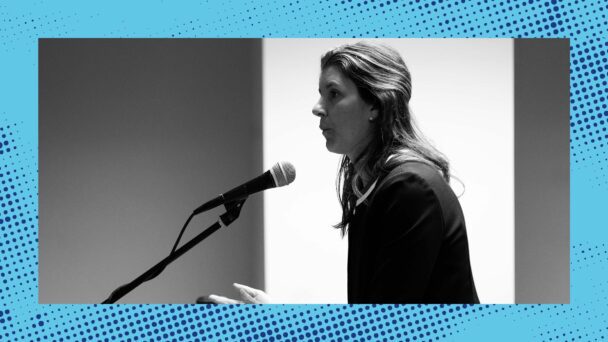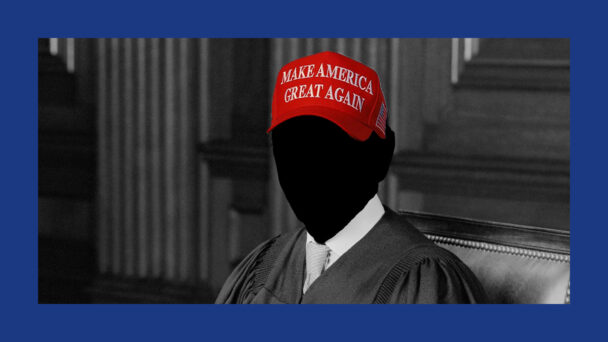Damon Landor is a devout Rastafarian who, for decades, adhered to the Nazarite Vow to “let the locks of the hair of his head grow long.” In the summer of 2020, when he was jailed on minor drug charges in Louisiana, his hair nearly reached his knees.
But when he was released from prison six months later, he was totally bald. Damon was transferred to Raymond Laborde Correctional Center in December 2020, with only three weeks left in his sentence. There, guards handcuffed him, held him down, and shaved his head to the scalp.
This unnecessary act of cruelty was also a blatant violation of federal law. In 2017, the Fifth Circuit Court of Appeals ruled in Ware v. Louisiana Dept. of Corrections that the state’s policy of cutting Rastafarians’ hair was an unlawful burden on their religious freedom. Damon took precautions to protect himself, and even brought a printed copy of the opinion to the new facility. The guards literally threw the opinion in the trash and cut off all his hair anyway. When Damon offered to get documentation of his religious faith from his lawyer, the warden told him, “Too late for that.”
Damon was released a few weeks later and sued. None of the judges who have heard Damon’s case in the years since dispute the fact that the guards subjected him to horrible treatment. Nor do they contest the flagrant illegality of the guards’ abuse. But they are divided on whether Damon—and the courts—can do anything about it. In a bitterly ironic way, then, the guards were correct to think that a federal appeals court’s ostensibly binding opinion was meaningless garbage.
Central to this case is a struggle over the Religious Land Use and Institutionalized Persons Act (RLUIPA), and what to make of arguably conflicting Supreme Court precedents interpreting it. Congress enacted the RLUIPA in 2000 to prohibit prison regulations that impose a “substantial burden” on religious exercise, and allowed victims to sue “to obtain appropriate relief.” But a decade later, in Sossamon v. Texas, the Supreme Court decided that “appropriate relief” did not include monetary damages when the defendant is a sovereign—for example, when the defendant is a state-run prison.
A few years later, the Fifth Circuit ruled that RLUIPA doesn’t authorize claims for monetary damages against specific prison officials in their individual or official capacities, either. This meant the only types of relief available were declarations that a prison practice is illegal or judicial injunctions to stop a prison’s illegal behavior, which don’t exactly help you after you’ve already been shaved bald.
But then in 2020, the Supreme Court decided Tanzin v. Tanvir, a case about a claim for monetary damages under the Religious Freedom Restoration Act (RFRA), which Congress passed in 1993. RLUIPA and RFRA are different laws, but their operative language is nearly identical: Like RLUIPA, RFRA lets people sue to “obtain appropriate relief against a government” when their religious liberty is infringed, and courts usually interpret the statutes in the same way. In Tanzin, the Court said that what constitutes “appropriate relief” is context-dependent and can include monetary damages. The Tanzin majority distinguished Sossamon on the grounds that Tanzin was a suit against individuals—FBI agents—and not a sovereign.
The Fifth Circuit (and, presumably, the rest of the literate public) did not find this distinction so obvious. In September 2023, Damon lost his RLUIPA case before a three-judge panel, and earlier this month, the court denied Damon’s request for the entire Fifth Circuit to rehear his case, explaining that “threading the needle” between Sossamon and Tanzin “is a task best reserved for the court that wrote those opinions.” In a concurring opinion, Judge Edith Brown Clement wrote that Damon “clearly suffered a grave legal wrong.” But, she continued, “the question is whether a damages remedy is available to him under RLUIPA. That is a question only the Supreme Court can answer.”
The Court’s rulings were unclear, you’ll get no argument from me there. But lower courts try to apply muddled Supreme Court precedent all the time. Yet here, a majority of judges figured it would be best to do nothing lest they get the law wrong. Judge Andrew Oldham wrote for five dissenting judges: “It is certainly true that the Supreme Court could fix the mistake we made today. But the Court could also fix every mistake we attempt to fix.” (Given the Fifth Circuit’s reputation for bucking the authority of the Supreme Court and Congress alike, this is a hell of time for the majority to discover a sense of judicial humility.)
This abdication of responsibility puts the proverbial ball in the justices’ court—and, in the meantime, leaves prisons free to keep nullifying federal law. Years ago, the Fifth Circuit expressly ruled that it is illegal for the carceral state to cut off Rastafarians’ locks. But the guards deduced that what the court said didn’t actually matter. By hemming and hawing, the Fifth Circuit is only proving them right.
==




